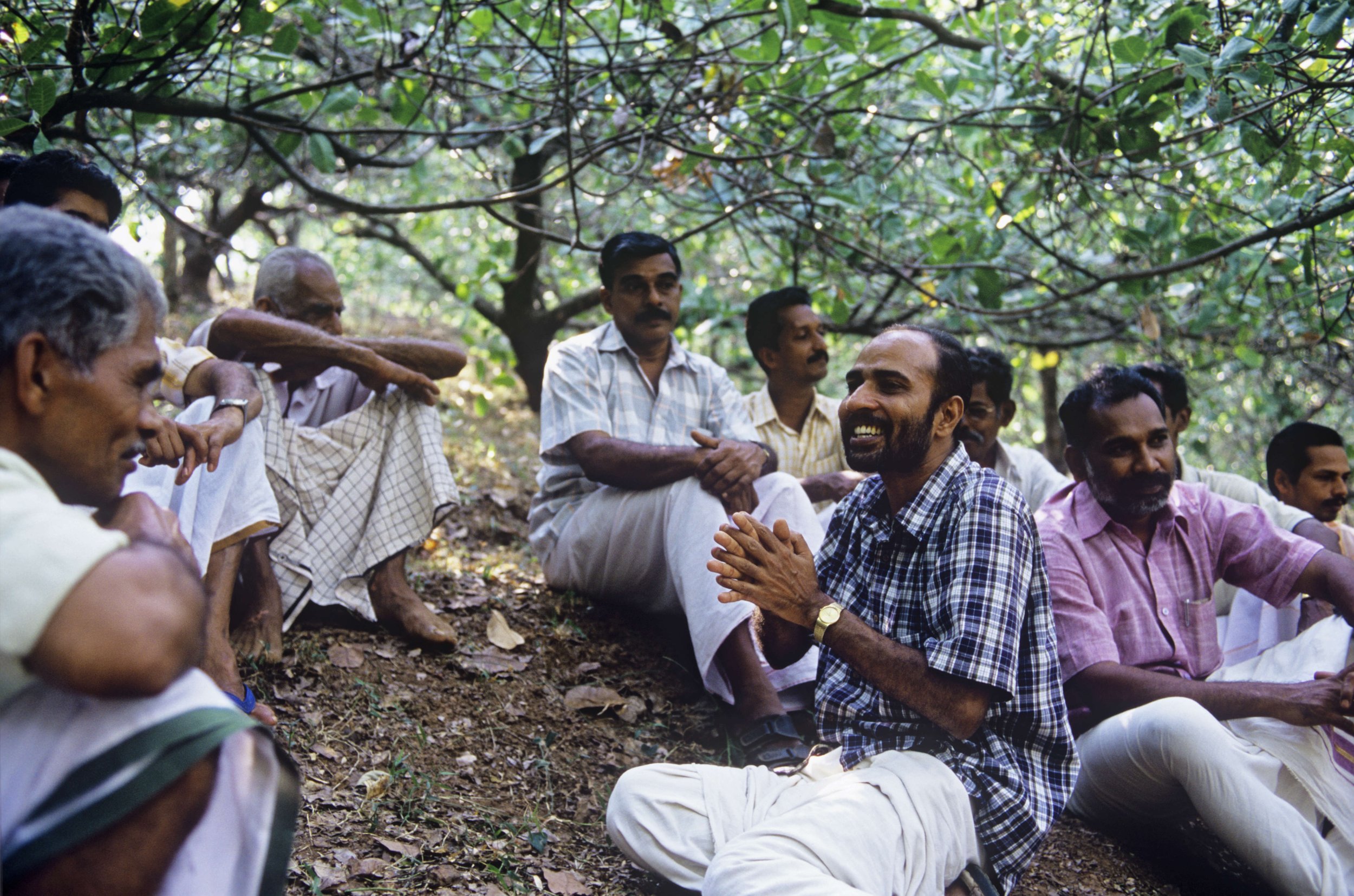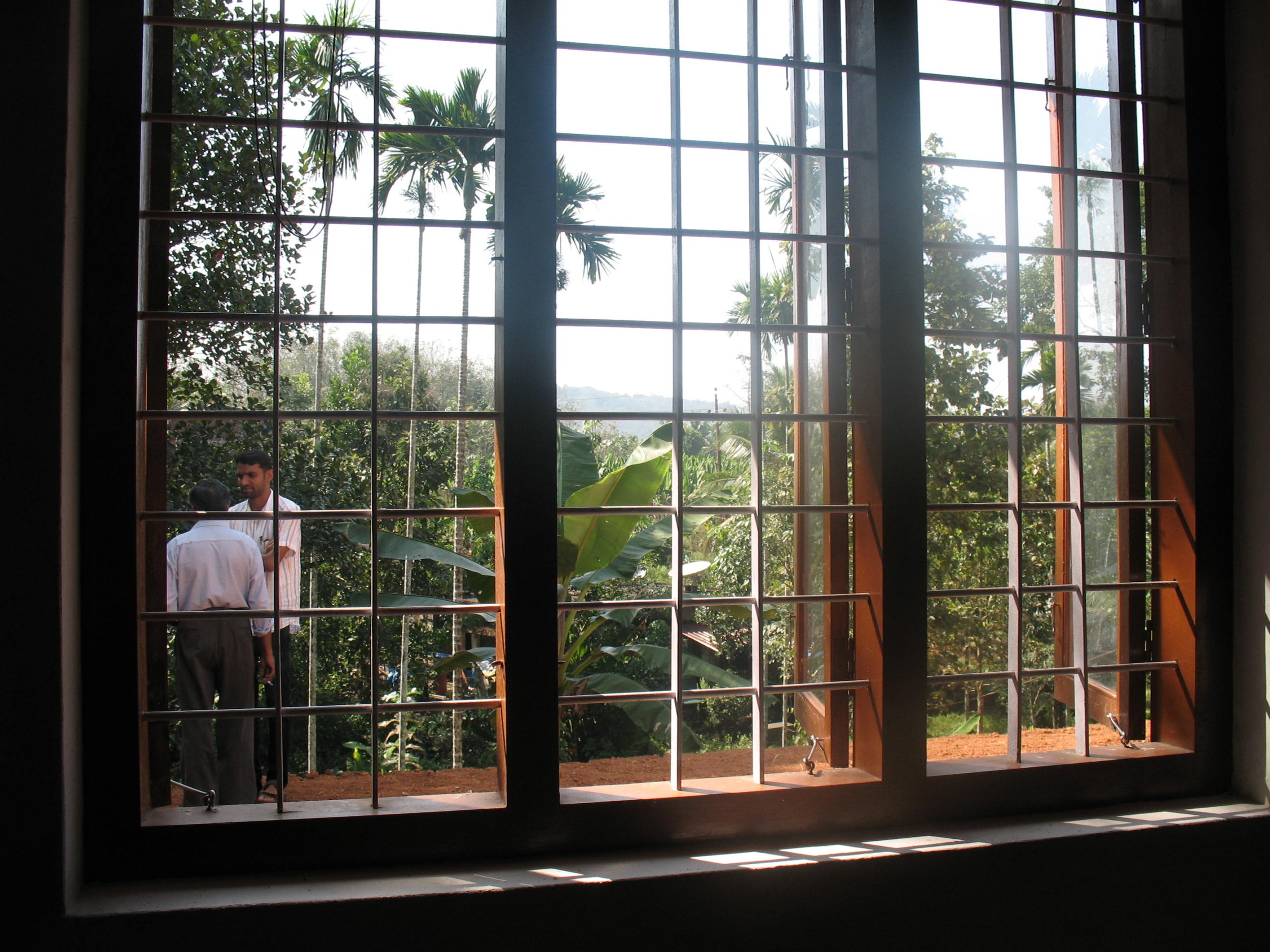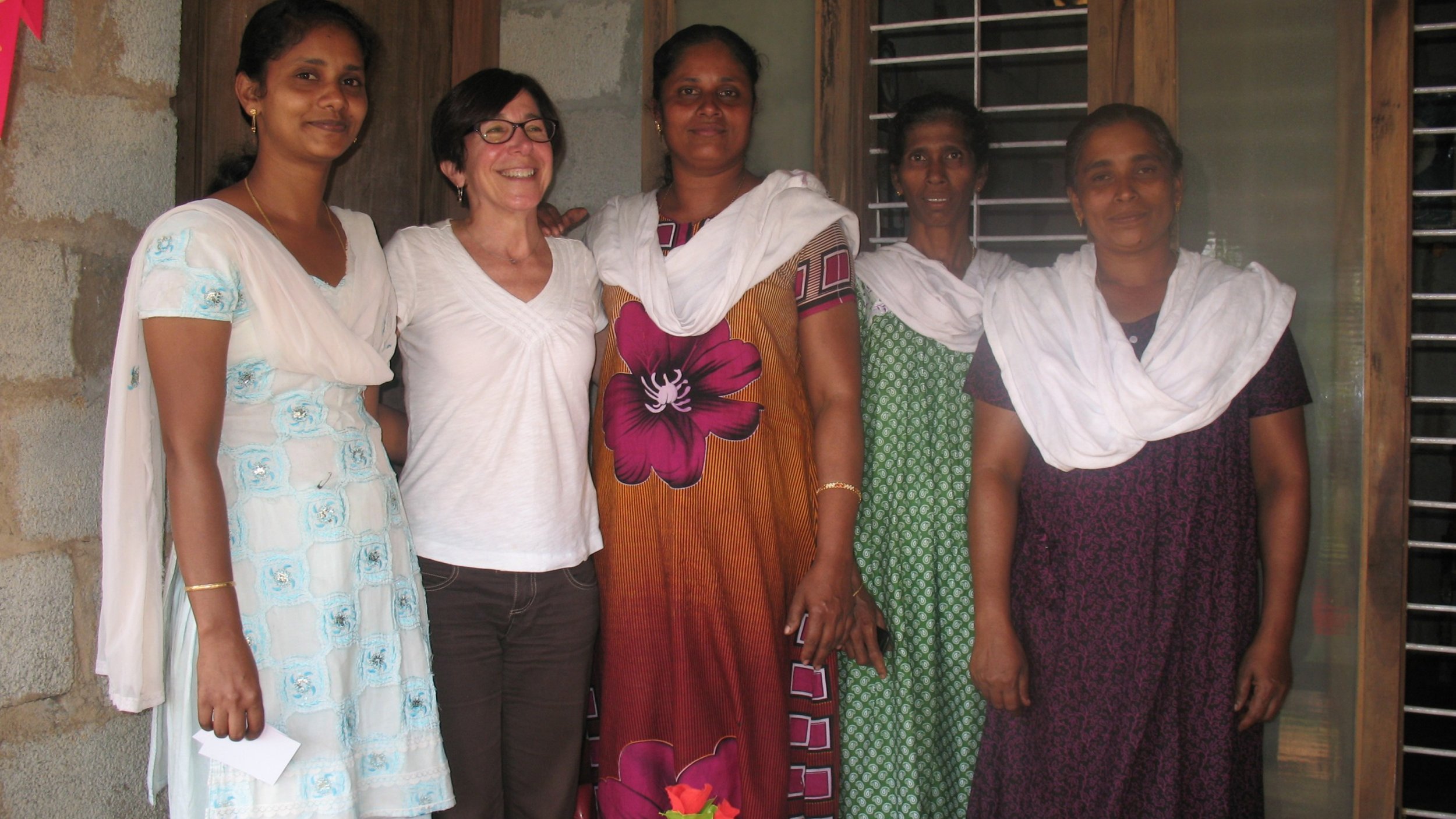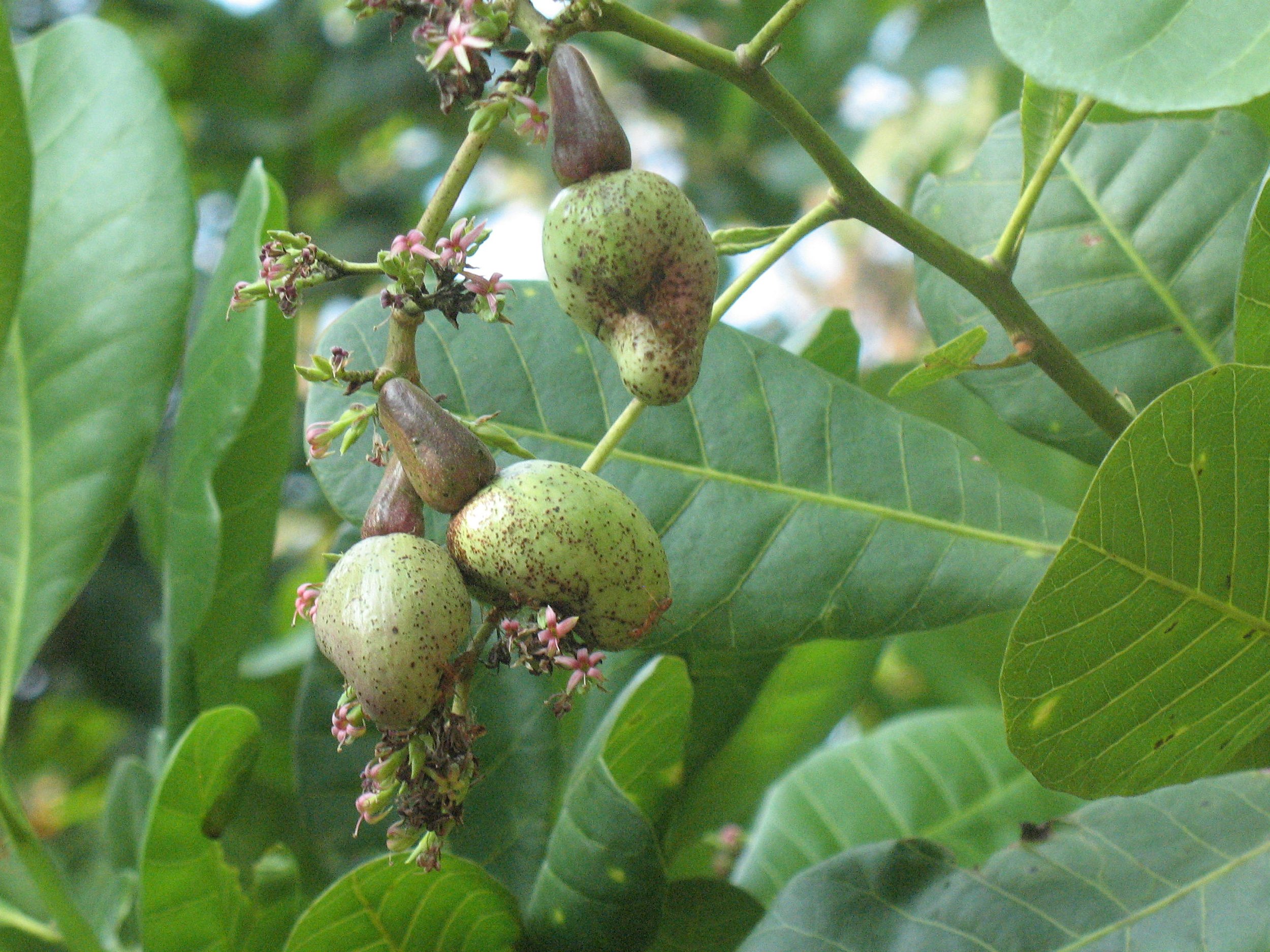Fair Trade Alliance Kerala (FTAK)
Tomy Mathew (center) is a cashew farmer and founder of FTAK.
In the mid-2000s, in southwestern India, the Fair Trade Alliance Kerala (FTAK) was formed to address the devastating impact that fluctuating market prices has had on the ability of small-scale producers to earn a stable and dignified livelihood.
Because the prices on the global market for these crops can fluctuate dramatically, the farmers have had no ability to withstand these cycles, plan for their futures, or make investments in their farms. For example, when the price of coffee dropped to 42 cents/pound in the late 1990s, farmers cut down their trees and planted spices, only to have the same phenomenon occur when the global price of pepper crashed. The farmers grew increasingly more impoverished and acquired steadily mounting debts. In despair, some took their own lives.
Tomy Mathew, General Manager of FTAK, was determined to change this situation and founded FTAK so that the farmers could access Fair Trade markets, diversify their crops, and improve their own food security needs. They received their Fair Trade certification in 2006. Today, the 4,500 members of FTAK produce a variety of crops for export, local sales, and personal consumption, such as coffee (robusta), cashews, ginger, pepper, coconuts, and rice.
Kerala is known to be the cashew capital of the world, with 60-70% of Kerala’s cashew production slated for the international market. In the past, the national government of India purchased all the cashews from the farmers, but this program was halted, further contributing to price instability. Now that the FTAK members are participating in the Fair Trade system, cashews have once again become lucrative and today are FTAK’s most important export product.
For all of FTAK’s export products, Fair Trade assures their members a minimum price, always above market. In this way, they are able to plan more confidently in their future. They also receive an additional premium that they use to reinvest in their farms and for social projects.
The premiums have been used for:
A disaster management fund. Many farmers have no option but to plant on hillsides. Landslides are frequent during monsoon season and it is not uncommon for housing and crops to be destroyed during these heavy storms. Government aid is often inadequate and slow, and so members voted to use the premiums for emergency assistance.
Processing facilities. In order to keep more of the value-added in the community, members have voted to use the premiums to build processing facilities for cashews and spices.
Solar panels to power electric fences around the farms. Wild elephants often enter the farms from the local forests and destroy crops, occasionally harming the farmers and their families. In an effort to protect themselves, sometimes the farmers kill the elephants. With these fences, FTAK members can protect their crops, the trees, and themselves, without causing harm to the elephants.
Community kitchens, bicycles for school children, and drinking water programs.
Zero-interest loans for livestock and crop purchases.
Financial assistance to assist with organic conversion.
Follow FTAK at https://www.facebook.com/FairTradeAllianceKerala






